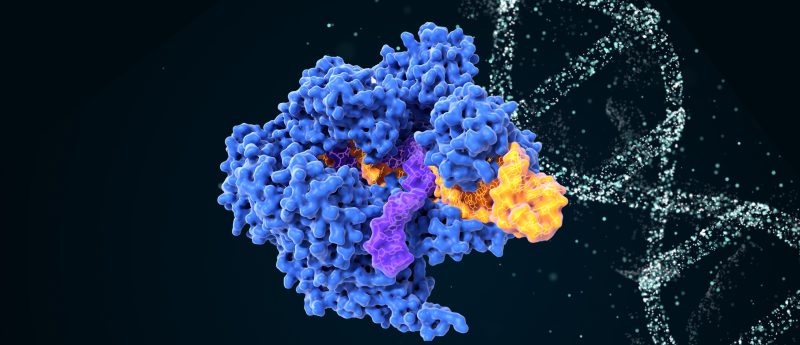Novel gene editing technique could improve treatment for patients with inherited immune system disorder

Researchers from University College London (United Kingdom) have successfully used a new gene editing strategy to repair a defective copy of the CTLA4 gene. The findings published in Science Translational Medicine could pave the way for the development of a new treatment for the rare white blood cell disease known as CTLA4 deficiency.
CTLA4 is a protein receptor found on T-cells and plays an integral role in regulating the immune response by preventing excessive T-cell activation. CTLA4 deficiency is caused by mutations in a gene called CTLA4. Most individuals have two functional copies of the CTLA4 gene however, individuals with CTLA4 deficiency only have one functional copy of the gene, which is insufficient to create enough protein to regulate the immune response and results in dysregulation of the immune system.
A hallmark of CTLA4 deficiency is the multi-organ manifestation of the disease, which results in the infiltration of immune cells into the lungs, bone marrow, brain, kidneys, and stomach. Autoimmune disorders such as psoriasis and autoimmune cytopenia are common in patients with CTLA4 deficiency. In addition to this, the disorder may marginally raise the chances of developing lymphoma, a cancer in immune cells.
The CRISPR/Cas9 system was utilized by the researchers to specifically target the defective gene in T-cells taken from patients affected by CTLA4 deficiency. The team restored levels of CTLA4 protein in patient-derived cells to those seen in healthy T-cells by inserting functional CTLA4 cDNA into the first intron of the CTLA4 genomic locus.
The researchers also experimented with mouse models that did not have any cells that express CTLA4. They were able to graft edited T-cells with normal CTLA4 expression and showed that this prevented lymphoproliferation, an abnormal increase in the T-cell population.
Co-senior author Claire Booth, Professor of Gene Therapy and Paediatric Immunology at UCL Great Ormond Street Institute of Child Health, commented, “It’s really exciting to think about taking this treatment forward to patients. If we can improve their symptoms and reduce their risk of getting lymphoproliferative disease this will be a major step forward. This particular paper is important because we are using the newest gene editing techniques to precisely correct these T-cells, which is a new approach in inborn errors of immunity.”
Currently, the only way of curing CTLA4 insufficiency is through a bone marrow transplant to replace the stem cells that produce the T-cells. There are numerous risks associated with the procedure. This includes the risk of graft versus host disease, infection, organ failure and many more.
“It’s a way of correcting genetic mutations that could potentially be applicable for other diseases. The bigger picture is it allows us to correct genes that are dysregulated or overactive, but also allows us to understand much more about gene expression and gene regulation,” stated Emma Morris, Professor of Clinical Cell and Gene Therapy and Director of UCL’s Division of Infection and Immunity.
Given the positive findings from the study, the team believes that this pioneering gene editing technique could be effectively utilized to cure a variety of diseases brought on by genetic mutations.